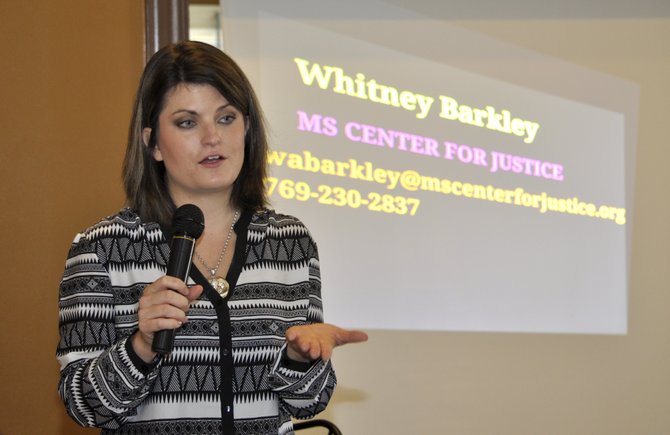Whitney Barkley believes that college loan debt could be bad news for the U.S. economy. Photo by Trip Burns
Just before the federal government went into partial shutdown mode amid a dispute over the government's ability to borrow money, there was grim news out of Washington D.C. about another important group of borrowers: students.
On Sept. 30, the U.S. Department of Education released the latest data on the three-year federal student-loan cohort default rate, which measures the percentage of borrowers who default on their federal student loans.
Those numbers are on the rise, going from 13.4 percent in fiscal year 2009 to 14.7 percent in FY 2010, the report shows.
Mississippi appears to be bucking some of the more negative college-loan trends, however.
Here, about 55 percent of students graduate with loan debt compared to the national rate of approximately 75 percent. That's due, in part, to Mississippi's strong community college system, which helps keep student-loan default rates down, said Mississippi Center for Justice staff attorney Whitney Barkley.
Nationwide, the problem is daunting. At $1.3 trillion, outstanding student-loan debt is second only to mortgage debt in the United States. In Mississippi, the average graduate leaves college with roughly $24,000 in loan debt, which is also lower than the national average of $26,600.
With all that debt piling up, the college-loan bubble could be "the next big crash," possibly surpassing the mortgage meltdown that ushered in the Great Recession.
"Borrowers (of today) can't contribute to the economy the way that previous generations contributed to the economy," Barkley explained during a presentation at Koinonia Coffee House this morning.
Fueling the bubble is a big jump in college tuition costs at public universities, which have risen 50 percent since 2000 and, because of the economic slump, more people went back to school to learn new skills. During this period, for-profit, or proprietary, schools expanded their presence in the college marketplace.
Barkley noted that for-profit institutions are typically more expensive than traditional two- and four-year colleges.
"The growing number of students who have defaulted on their federal student loans is troubling," said U.S. Secretary of Education Arne Duncan through a press release about the student-loan rates.
"We remain committed to building a shared partnership with states, local governments, institutions, and students—as well as the business, labor, and philanthropic leaders—to improve college affordability for millions of students and families."


